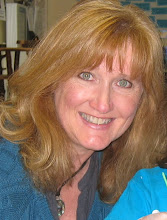It's so hard to tell where you end, and they begin. Where is the boundary between parent and child? Presumably, there is one, but sometimes it's hard to find it. When you're pregnant, you learn to cope with the mind-boggling sensation of a tiny parasite living inside you (and in my case, sapping most of your physical and mental energy.) You truly ARE one person for those months. There literally is no separation, although at moments during those last few weeks, you really wish you could just have your body back. And then your child is born, and SNIP, doctor or Dad cuts the cord, and you begin the long process of letting go.
If I weren't a toddler teacher, I could just focus on my own parenting. I could reflect on my own journey, and think about how far down that path of letting-go I've finally made it in these twenty-two years. I could realize that my job as a mom is sort of close to "ending," but not really, because it never does. And then I could focus on other, more adult issues, such as, say, the latest episode of Grey's Anatomy. But I get to be immersed in the same struggle every day with my preschool families, and this causes me to look at the world a little differently than I would if I were an accountant, an editor, or a stock broker. I see everything through the lens of ATTACHMENT. I can't help it. It's the only lens I have now, after all these years with toddlers and their parents. And I guess I'm glad that I see the world this way.
The most important thing I've learned is that attachment is real and it's essential. Everyone needs to be the center of someone's universe. Child-parent attachment and its implications have been well-studied and documented, and a strong attachment early in life is widely accepted as being foundational to life-long mental, physical, and emotional health. Ok, good-- so our urgent impulses to protect and nurture are accomplishing what nature intends. Our desire for close connection with our offspring serves a purpose in their development.
BUT: the second most important thing I've learned is that healthy attachment includes a component of de-tachment. The healthiest family relationships are based on the changing needs of the child as the child grows and develops. It's not good to get stuck in one spot and stay there. A newborn needs constant close contact for survival, but a two-year-old really does need a bit of physical and emotional space. Many parents in my programs are struggling with this change: it felt really good to be everything to that child for two years. Even though it's now becoming obvious that it's time to step back a bit and let the child work on a few things on her own, Mom or Dad often are not ready for this step in their own adult development. They don’t know how to re-tool and reconfigure their parent-child roles and relationship. So they hover over the child at school, they remind the child that they are “my baby,” they speak for the child, they speak TO the child instead of letting other adults speak to them, they make excuses for the child's behavior, and they insulate the child from as much frustration as possible. Sometimes, the toddler's developmental mandates will take over, and the will to be his own person will manifest itself in tantrums, fussing, and rebelling.
Fortunately, many parents begin to get the message at this point, and start learning to gradually detach: they stand back physically so that the child can interact with other people on her own, they wait 20 seconds before intervening in a toddler squabble over a toy, they refrain from saying, "he's tired," or "she's getting her molars" to explain the child's fussy behavior, and instead let the child and her behavior speak for itself. When parents are able to adapt and change their connection gradually to meet the changing needs of the child, they reap the benefits of a constantly changing and ever-strenthening bond with their child.
My young-adult daughters still need a close connection and a young-adult form of attachment to their mom, but it doesn't work for them at this stage of development when I try to pull them as close to me as I did when the were little. And frankly, it doesn't work for me, either! As they have grown and found their own path in life, so have I. They want their space, and I do too. It feels good for all of us to be right where we are in our own development, and we greatly enjoy each other's company when we converge our individual paths to spend time together. I can only imagine how frustrating and stressful life might be if we were still trying to be as merged as we were when they were much younger.
In my parenting, letting-go has been a gradual process, and I've had to work hard to figure it out along the way. I've gotten it wrong a lot of times: I've clung too tightly to them many times, and let go too quickly at other times. I'll always get it wrong sometimes, I'm sure. But I cling to the hope that trying hard really does count for something in parenting.





No comments:
Post a Comment
I would love to hear comments from readers! Please let me know what you think.